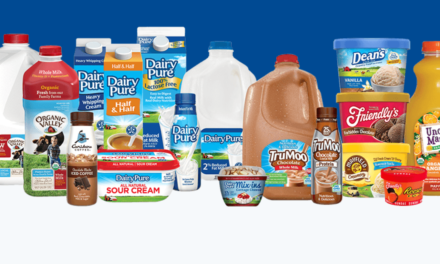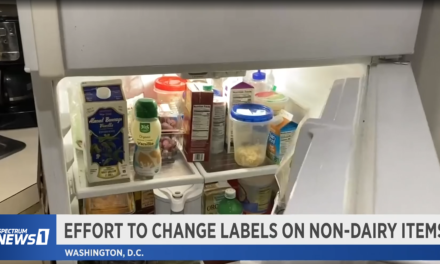This week the American Vegan Society joined thousands of citizens and other groups responding to the Food and Drug Administration’s draft guidance on the labeling of plant-based milks that was issued on Feb. 22, 2023. Here is the official comment on the topic as submitted by AVS.

A glass of milk. Plant milk.
COMMENT:
While the term “milk” is commonly used for products from cows, it has always been used for plant-based products as well, such as coconut milk and soymilk. Furthermore, the first milks made in America were nut and seed milks, created by the Wabanaki and other tribes long before the arrival of Europeans. The American Vegan Society thus applauds the main thrust of the FDA draft guidance — that plant-based milks should be free to use the term “milk” on labels.
However, the recommendation that non-animal milks should carry labels comparing themselves on a nutrient-by-nutrient basis with cow-based milks is a bad idea whose only point is mollifying dairy producers. Cow’s milk, designed for consumption by calves, should not be considered a standard for human nutrition. Despite the FDA’s officially remarking that “studies indicate that consumers understand that plant-based milk alternatives do not contain milk when shopping for various types of products labeled with the term ‘milk,'” the proposal of this additional labeling furthers the fiction that consumers will not realize they are consuming a product with a different set of ingredients. Such mandatory labeling also would be incredibly complicated for the FDA to regulate, while at the same time being completely unnecessary.
Our colleagues at the Vegetarian Resource Group (VRG) noted in an earlier public comment on this issue that “the Nutrition Facts and ingredient list on food labels along with [existing] front-of-label information allows consumers to evaluate the nutritional characteristics of plant-based products.” AVS joins with VRG in encouraging consumers “to seek out plant-based products that are fortified with nutrients such as calcium, vitamin D, and vitamin B12 if they rely on these products as a source of these nutrients,” but stresses that “consumers are aware that there are nutritional differences between plant-based and animal-based products.”
In fact, what consumers are kept the most in the dark about, and are thereby confused about, are the nutritional liabilities of dairy: That cow’s milk is the most common childhood allergen; that it is very low in iron; that a majority of people of color are unable to digest lactose as adults; that all dairy beverages contain cholesterol, while no plant beverages do; that claims of dairy “building strong bones” have been proven false; that Vitamin D is not a natural component but artificially added; and that milk consumption has been strongly tied to diseases such as breast cancer. If labels must specify information potentially impacting consumers’ health, the transparency must logically go both ways.
Therefore, the American Vegan Society calls on the FDA to formalize its ruling that there is no consumer confusion over the word “milk” on labels and permit the use of the word without tying this use to additional mandatory nutrition labeling — unless such detailed labeling is made mandatory for cow’s milk as well.
SOURCES:
* FDA: Draft guidance
* Portland Press Herald: Americans have been enjoying nut milk and nut butter for at least 4 centuries
* Vegetarian Resource Group 2018 Comments




